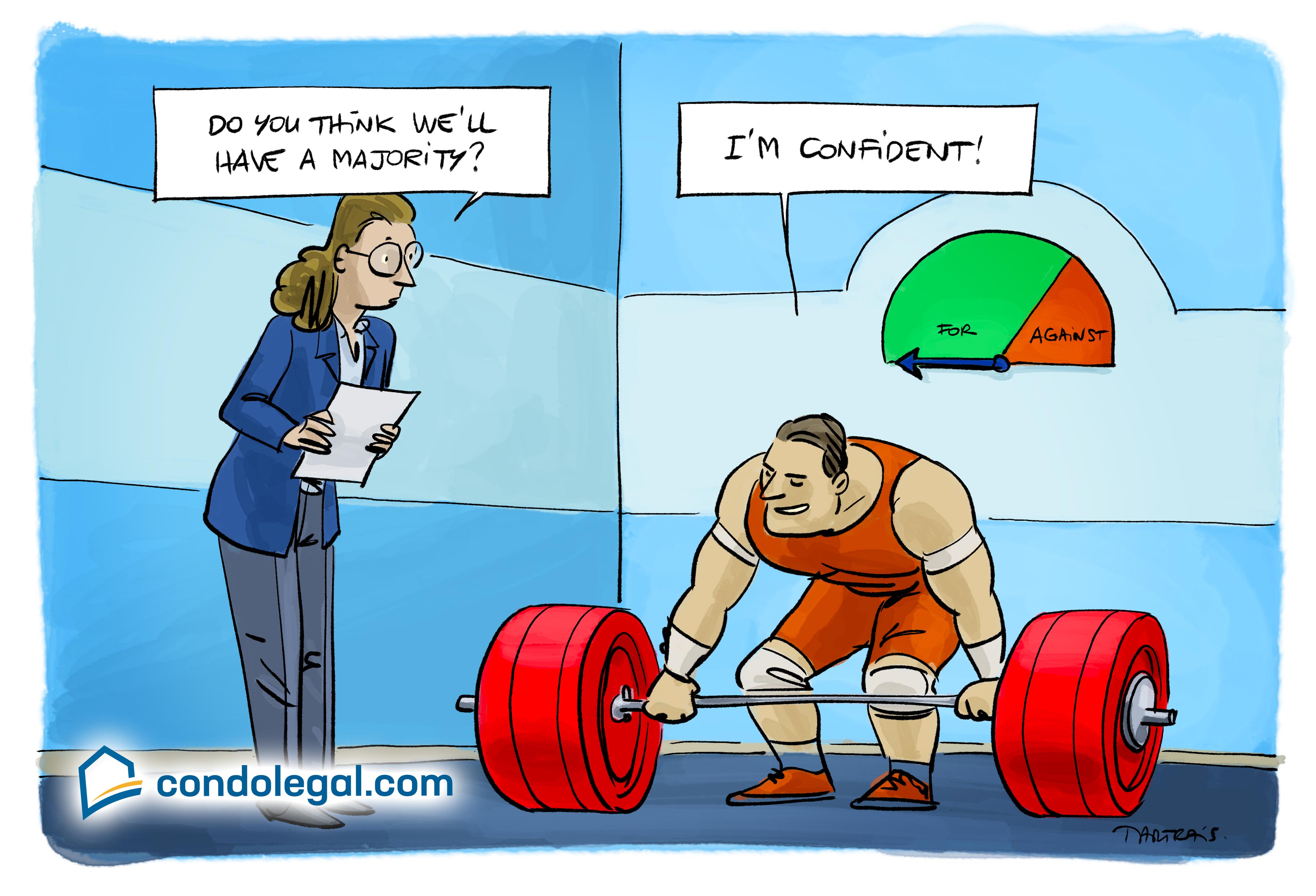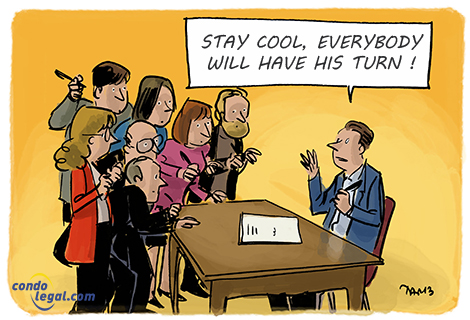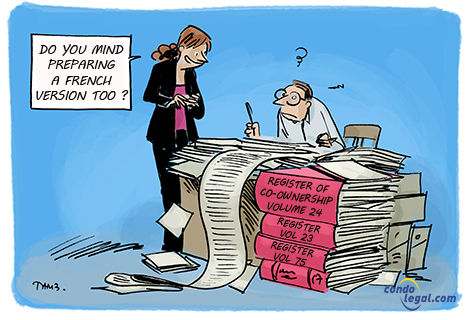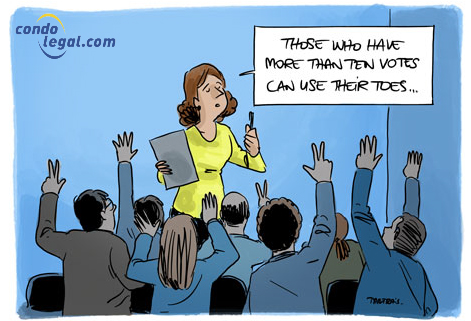21 Articles

The interpretation of a declaration of co-ownership during a general meeting of the co-owners is sometimes problematic. If, moreover, it has been published before the coming into force of the Civil Code of Québec, in 1994, things can get dicey. In order to avoid potential conflicts between co-owners, caused by an outdated declaration of co-ownership, it is essential to have it rewritten, if it has been published before January 1, 1994. A professional with experience…...

The relevant information of co-ownerships must be declared with the “Registraire des entreprises du Québec” (the Québec Enterprises Registrar). This declaration is intended to render accessible essential information, either to the public or enterprises that deal with the syndicate of co-owners. Furthermore, at the start-up of a syndicate, the Board of Directors must file – usually by the interim director – a declaration of registration in virtue of the Act respecting the legal publicity of enterprises. This must be done no later than 60 days…...

The provisions related to the appointment and replacement of the directors are provided for in the By-laws of the immovable (2nd part of the declaration of co-ownership). In their absence, they are also found in the Civil Code of Quebec (C.C.Q.). The law thus leaves it to the co-owners to establish themselves, in their declaration of co-ownership, the rules that best suit them. However, the appointment of directors generally falls within the competence of the…...

The Board of Directors (the Board) is made up of members called directors. Their appointment is subject to certain formalities. In this regard, article 1084 of the Civil Code of Québec provides that the composition of the Board of the syndicate, the method of appointment, replacement or remuneration of the directors, as well as the other terms and conditions of their office, are fixed by the by-laws of an immovable. Each director acts as a mandatary of the syndicate of…...

The Civil Code of Quebec requires an enhanced majority for certain decisions that have a greater impact on the community of co-owners or on their individual rights. These decisions can significantly influence the daily lives of co-owners and the value of their properties. In addition, this enhanced majority is intended to temper the influence of certain co-owners who, because of the large number of voting rights they hold over their fraction, could otherwise dominate the decisions taken…...

The Civil Code of Quebec, in articles 1098 and 1108, establishes a "double majority" for certain significant decisions of the co-ownership assembly, requiring a consensus in both the number of co-owners and voting rights. Article 1098 of the Civil Code of Quebec deals with major decisions such as changing of use of the immovable, while article 1108 of the Civil Code of Quebec allows for the termination of co-ownership. These provisions ensure thoughtful decision-making, protect the individual rights…...

An attendance sheet must be kept for each co-owner's meeting. However, the Civil Code of Québec does not specify any specific rules, such as the person responsible for its establishment, or the time when this formality must be completed. The declaration of co-ownership generally stipulates that it must be prepared by the directors or the secretary of the syndicate before the meeting is held. This attendance sheet is the physical proof of the presence…...

A question often arises whether a co-owner can modify the agenda received with his notice of call to the Annual Meeting, either before or during the General Meeting? The Meeting of co-owners is governed by strict legal rules that you should know about. In principle the General Meeting deliberates only on the questions inscribed on the agenda before holding the General Meeting. Otherwise, any decision taken upon a question illegally placed on the agenda is null and…...

The declaration of co-ownership is a document that encompasses all the rules specific to a syndicate of co-owners, to ensure the proper functioning of a building and cohesion among its occupants. It also specifies the conditions of use and enjoyment of the common and private portions. Life in co-ownership is not static. It evolves and is subject to changes, which will sooner or later be demanded by the co-owners. This evolution may sometimes lead to amendments…...

In co-ownership management, co-owners are tasked with making decisions on various aspects of their building that go beyond the powers granted to the board of directors. Typically, decisions within the syndicate's remit are made by a majority of the votes of co-owners present or represented at the meeting at the time of voting (more than 50%). This majority, legally referred to as an absolute majority, is required for routine decisions made by the assembly, unless the…...
